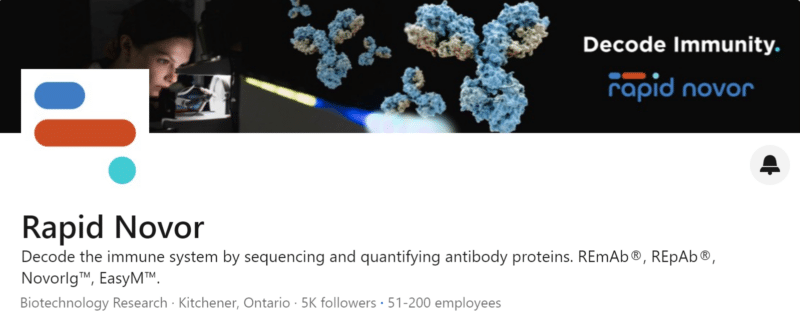Wu, Y, Staquicini FI, Chen I. 2024. Cell-Free Methods Of Producing Antibodies To Intracellular Targets. MBrace Therapeutics, Inc. (San Diego, CA, US) 20240068004 https://www.freepatentsonline.com/y2024/0068004.html
Key Takeaways
- Recombinant antibody production is crucial for the reliable and efficient manufacturing of antibody-based treatments. However, expressing antibodies that target intracellular proteins poses notable challenges.
- De novo antibody sequencing using REmAb® facilitates recombinant antibody production against intracellular targets via innovative cell-free methods.
- By leveraging amino acid sequence knowledge, antibody sequences are humanized and transformed into expression vectors suitable for modified cell-free systems, thus enhancing the efficiency of antibody production.
Summary
Intracellular proteins serve as unique targets for antibody-based therapies in cancer and various pathological conditions, as they play pivotal roles in fundamental cellular processes including stress responses, cell signaling, and cell cycle regulation.
Recombinant antibody production is crucial for ensuring reproducibility and efficient manufacturing of antibody-based therapeutics. However, producing antibodies that target intracellular proteins poses significant challenges. Binding of an antibody to its intracellular protein target during recombinant antibody production can be detrimental to the cell, affecting its viability. Additionally, intracellular proteins may act as “sinks,” sequestering antibodies, thereby impeding secretion and limiting production yield.
Researchers at MBrace Therapeutics patented a novel cell-free method for recombinant antibody production targeting intracellular targets. Their focus on the intracellular target, GOLPH3, stems from its involvement in the target of rapamycin (TOR) signaling pathway. Utilizing REmAb® de novo antibody sequencing, they decoded the amino acid sequence of a commercially available antibody that binds to GOLPH3. Armed with this knowledge, they humanized the antibody and generated an expression vector encoding the humanized anti-GOLPH3 antibody.
Given the challenges in antibody production against intracellular targets, the researchers elucidated the binding epitope of the anti-GOLPH3 antibody against its antigen. Subsequently, they engineered a modified cell line expressing a mutated version of the GOLPH3 antigen, designed to disrupt antibody-antigen binding during production. By introducing the expression vector encoding the antibody into the modified cell-free system, they enabled recombinant antibody production against an intracellular target.
Talk to Our Scientists.
We Have Sequenced 10,000+ Antibodies and We Are Eager to Help You.
Through next generation protein sequencing, Rapid Novor enables reliable discovery and development of novel reagents, diagnostics, and therapeutics. Thanks to our Next Generation Protein Sequencing and antibody discovery services, researchers have furthered thousands of projects, patented antibody therapeutics, and developed the first recombinant polyclonal antibody diagnostics.
Talk to Our Scientists.
We Have Sequenced 9000+ Antibodies and We Are Eager to Help You.
Through next generation protein sequencing, Rapid Novor enables timely and reliable discovery and development of novel reagents, diagnostics, and therapeutics. Thanks to our Next Generation Protein Sequencing and antibody discovery services, researchers have furthered thousands of projects, patented antibody therapeutics, and ran the first recombinant polyclonal antibody diagnostics


